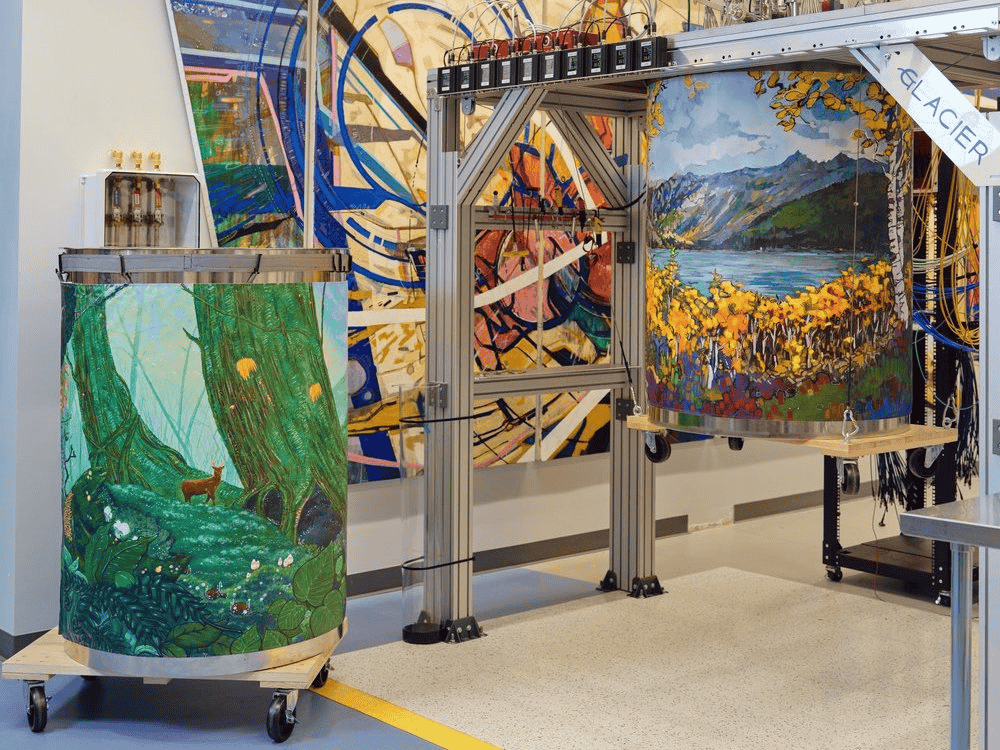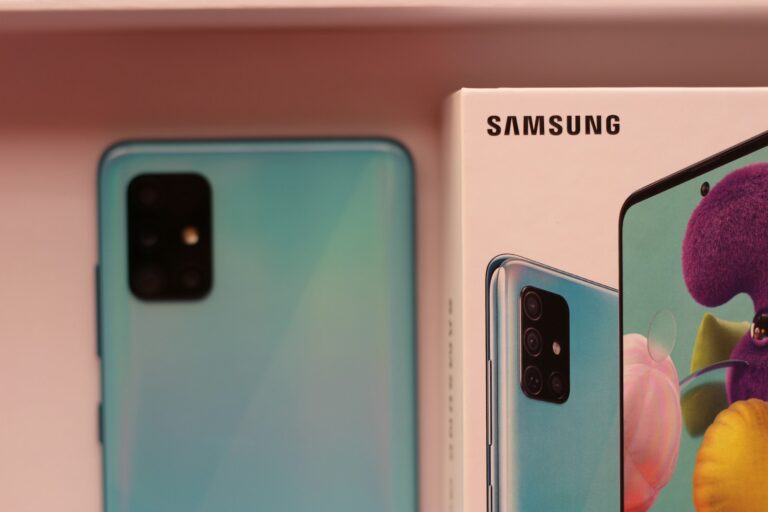
Google has made significant investments into their quantum computing program; but they don’t really seem to know what to do with the tech they’ve developed. So the company is exploring the potential applications of quantum computers and circling in the public for ideas. Quantum computers are significantly more powerful than traditional computers and can tackle complex problems much more efficiently. Quantum computing will revolutionize fields such as chemistry, materials science, and energy, with the potential to change how we develop and test areas like medicine, materials science, finance, and artificial intelligence.
Google has been spending money on research in this area for years and years, and they’ve made substantial progress in both quantum hardware and software, achieving milestones such as quantum supremacy and developing a prototype for a logical qubit. The company’s goal is to construct an advanced quantum computer capable of solving problems that are beyond the capabilities of traditional computers.
Google is collaborating with others to build a robust quantum community and maximize the potential of this new technology. Quantum computers operate differently from traditional computers as they utilize quantum bits or qubits, enabling rapid processing of large amounts of data. Additionally, Google is partnering with others to explore new applications of quantum technology, such as developing apps and enhancing drug discovery and battery design.

Google’s Quantum Leap: Beyond Classical Computing
Google’s Quantum Milestones
Google has been a pioneer in quantum computing, achieving significant milestones in recent years:
- 2019: Sycamore Processor: Google claimed “quantum supremacy” with their Sycamore processor, performing a calculation in 200 seconds that would take a supercomputer 10,000 years.
- 2023: Logical Qubit Prototype: Google demonstrated the first logical qubit prototype, showcasing the feasibility of error correction for large-scale quantum computers.
Google’s Quantum Roadmap
Google’s quantum roadmap outlines six key milestones:
- Beyond Classical: Demonstrating quantum computations beyond the reach of classical computers.
- Quantum Error Correction: Building a logical qubit prototype with error correction.
- Long-Lived Logical Qubit: Achieving a logical qubit capable of performing one million computational steps with less than one error.
- Logical Gate: Creating a low-error gate between logical qubits.
- Engineering Scale-Up: Scaling up to 100 logical qubits with high-fidelity gate operations.
- Large Error-Corrected Quantum Computer: Building a quantum computer with one million qubits and low error rates.

Potential Applications of Google’s Quantum Computers
Google is actively exploring various applications for quantum computers:
- Drug Discovery: Simulating complex molecular interactions to accelerate drug development.
- Materials Science: Designing new materials with desired properties.
- Financial Modeling: Optimizing portfolios and pricing options.
- Artificial Intelligence: Enhancing machine learning algorithms for pattern recognition and optimization.
- Climate Modeling: Simulating climate systems to understand and mitigate climate change.
- Energy Research: Optimizing energy production and distribution.
Google’s Quantum Hardware and Software
Google is developing a full-stack quantum computing solution, including:
- Hardware: Superconducting qubits, cryogenic environments, and custom control electronics.
- Software: Calibration and error correction software, open-source tools like Cirq for writing quantum circuits.
Collaborations and Partnerships
Google is actively collaborating with academic institutions, research organizations, and industry partners to accelerate quantum computing research and development. Some notable collaborations include:
- XPRIZE Quantum Applications: A global competition to advance quantum algorithms for real-world applications.
- Industrial Use Cases: Collaborations with partners to explore quantum computing applications in chemistry, materials science, and energy.
Google’s Open-Source Quantum Initiatives
Google is committed to open-sourcing quantum tools and resources to foster a collaborative ecosystem. They’ve released several open-source projects, including:
- Cirq: A Python framework for creating and manipulating quantum circuits.
- OpenFermion: A library for simulating fermionic systems on quantum computers.
- qsim: A high-performance quantum circuit simulator.

Key Takeaways
- Google is searching for practical applications of quantum computers
- Quantum computers can process data much faster than regular computers
- Google is partnering with others to develop helpful quantum applications
Fundamentals of Quantum Computing
Quantum computing uses special properties of tiny particles to process information. This new technology promises to solve complex problems faster than regular computers.
Quantum Computing Concepts
Quantum computers work with qubits instead of regular bits. Qubits can be 0 and 1 at the same time. This is called superposition. It lets quantum computers do many calculations at once.
Another key concept is entanglement. This links qubits together. Changes to one qubit affect others instantly. Quantum gates control qubits to do math. Quantum circuits string these gates together to make algorithms.
Quantum AI uses these concepts to speed up machine learning. But qubits are delicate. Small disturbances cause errors. This makes building useful quantum computers hard.
Hardware and Software Landscape
Many groups are working on quantum hardware. Google, IBM, and others use superconducting circuits for qubits. Some use trapped ions or silicon chips instead. Each type has pros and cons.
Quantum processors need special controls. These keep qubits stable and run programs. Software helps design quantum circuits. Google’s Cirq is one open-source tool for this. It works with their quantum chips.
Cloud services let people use real quantum computers remotely. This helps test ideas without building hardware. But current systems are small. They can’t yet beat regular computers at useful tasks.
Error Correction and Fault Tolerance
Errors are a big problem in quantum computing. Even tiny mistakes can ruin calculations. Error correction helps fix this. It uses extra qubits to spot and fix mistakes.
The surface code is one way to do this. It spreads information across many qubits. This protects against errors. But it needs lots of qubits to work well.
A fault-tolerant quantum computer could run long programs without errors. This needs very low error rates. Current systems aren’t there yet. Improving hardware and better error correction are key goals.
Google’s Quantum Endeavors
Google is pushing the boundaries of quantum computing. The tech giant aims to find real-world uses for this cutting-edge technology. Their efforts span research, development, and practical applications.
Google Quantum AI Efforts
Google Quantum AI leads the company’s work in quantum computing. The team is based in Santa Barbara, California. They focus on making quantum computers that can solve real problems.
Google’s quantum computers use special chips. These chips can do certain math tasks faster than regular computers. The team works on both the hardware and software sides of quantum computing.
Google Quantum AI also partners with other experts. They team up with scientists and companies to explore new ideas. This helps them stay at the forefront of quantum research.
Research and Development Targets
Google’s quantum research covers many areas. They look at ways to use quantum computers for drug discovery. This could help make new medicines faster.
The team also studies quantum simulation. This could help design new materials or understand complex chemical reactions. Machine learning is another key area. Quantum computers might make AI systems smarter and faster.
Google wants its quantum work to help solve big problems. They’re looking at ways to use quantum tech for sustainability and health. The goal is to create tools that can make a real difference in the world.
Quantum Impact and Future Horizons
Google has launched a big contest to spur quantum innovation. The XPRIZE Quantum Applications competition offers $5 million in prizes. It aims to find practical uses for quantum computers that can help society.
The contest links to the UN’s Sustainable Development Goals. This shows Google wants quantum tech to tackle global issues. Areas of interest include clean energy, better resource use, and improved healthcare.
Google faces challenges in making quantum computers useful. The technology is still new and hard to scale up. But the company is investing heavily to overcome these hurdles. They believe quantum computing could transform many fields in the coming years.
Frequently Asked Questions
Quantum computing is advancing rapidly. Google and other companies are exploring its potential uses across industries and scientific fields.
What are the current applications of quantum computing in industry?
Quantum computers are beginning to make contributions in the fields of finance and drug discovery. Banks are utilizing them to model financial risks, while pharmaceutical companies are using them to test new molecules for potential medicines. These are just the initial applications as the technology continues to advance. Currently, quantum computers are mainly employed for research and development purposes. They are being explored in various areas such as materials science, drug discovery, financial modeling, and optimization problems. Although they have not yet surpassed classical computers for most practical tasks, they hold great promise for solving complex problems that are currently beyond the capabilities of traditional computing.
How is quantum computing influencing scientific research?
Scientists use quantum computers to study complex systems. This includes simulating chemical reactions and modeling quantum physics. The extra computing power helps researchers tackle hard problems in new ways.
What are the potential advantages of using quantum computers over classical computers?
Quantum computers can solve certain problems much faster than regular computers. They excel at optimization tasks and simulating quantum systems. This could lead to breakthroughs in areas like materials science and artificial intelligence.
What advancements has Google made in the field of quantum computing?
Google has built quantum processors with many qubits. In 2019, they claimed to achieve quantum supremacy. This means their quantum computer solved a problem faster than any classical computer could. Google aims to build an error-corrected quantum computer in the next decade.
How does quantum computing impact data security and cryptography?
Quantum computers could break current encryption methods. This poses risks to data security. Researchers are working on new quantum-safe encryption to protect information. Quantum key distribution offers a way to share encryption keys securely.
What are the projected future developments in quantum computing technology?
Experts predict more powerful and stable quantum computers. Error correction will improve qubit quality. Quantum computers may solve real-world problems in chemistry and logistics. Cloud-based quantum computing services could become more common.
What does Google use quantum computing for?
Google utilizes quantum computing for various research areas, with a particular focus on applying it to artificial intelligence and machine learning. Quantum computers have the potential to revolutionize these fields by tackling tasks that involve complex optimization problems and efficient sampling, leading to advancements in areas like image recognition, natural language processing, and drug discovery.
Can quantum computers do anything useful yet?
Quantum computers are still in their early stages of development, and their capabilities are limited compared to classical computers. However, they have shown potential for solving specific problems that are intractable for classical computers, such as simulating quantum systems and factoring large numbers (which has implications for cryptography). While their practical applications are currently limited, researchers are optimistic about their future potential.
What can quantum computers do that normal ones can’t?
Quantum computers have the potential to solve certain types of problems exponentially faster than classical computers. This is due to their ability to leverage quantum mechanical phenomena like superposition and entanglement, allowing them to perform calculations that are impossible for classical computers to handle efficiently. Examples include simulating complex molecules, optimizing large-scale logistics, and breaking current encryption algorithms.
Why did NASA shut down the quantum computer?
NASA hasn’t shut down its quantum computer. They actually collaborate with companies like Google and D-Wave to explore the potential of quantum computing for various space-related applications, such as optimizing spacecraft trajectories, improving communication networks, and developing new materials.
What real-world problems can quantum computers solve?
Quantum computers have the potential to solve various real-world problems that are currently challenging for classical computers. These include:
- Drug Discovery: Simulating the behavior of molecules to accelerate the development of new drugs and treatments.
- Materials Science: Designing new materials with enhanced properties for applications in various industries.
- Financial Modeling: Optimizing investment portfolios and risk management strategies.
- Logistics and Supply Chain: Finding the most efficient routes and schedules for transportation and delivery.
- Artificial Intelligence: Enhancing machine learning algorithms for tasks like image recognition and natural language processing.
- Cryptography: Breaking current encryption methods and developing new, quantum-resistant security protocols.
While quantum computers are not yet powerful enough to tackle these problems on a large scale, ongoing research and development are paving the way for their future applications in solving some of the world’s most pressing challenges.






